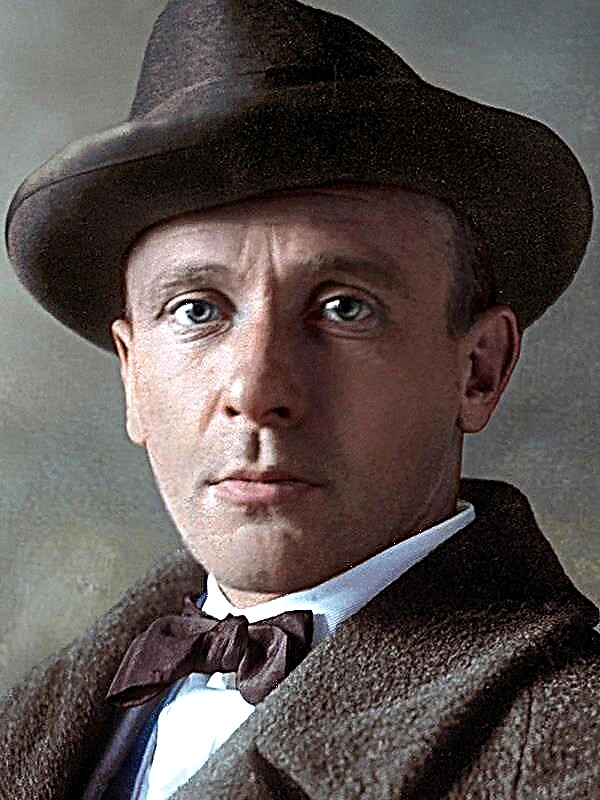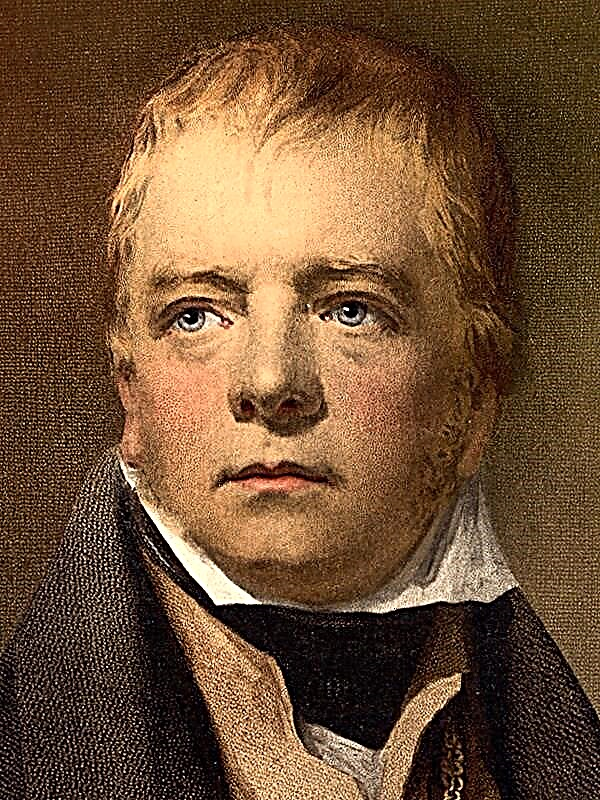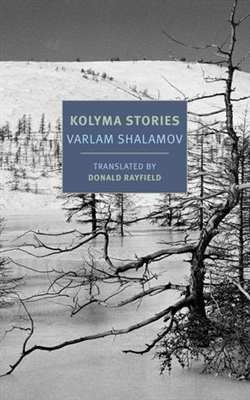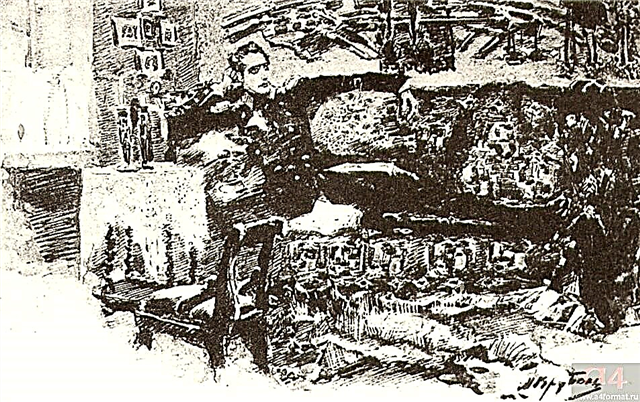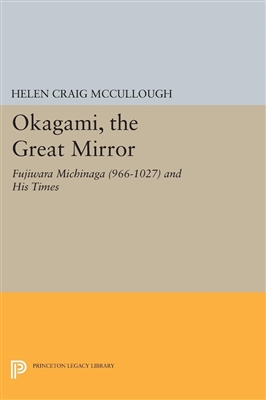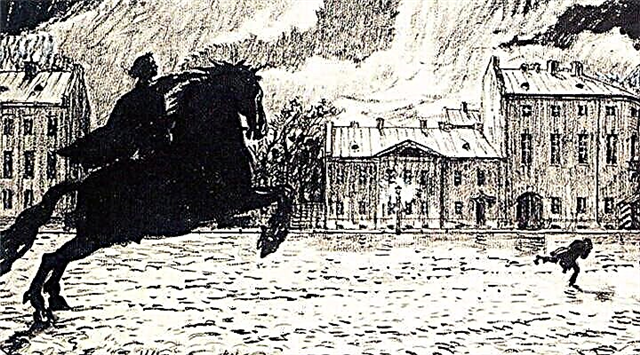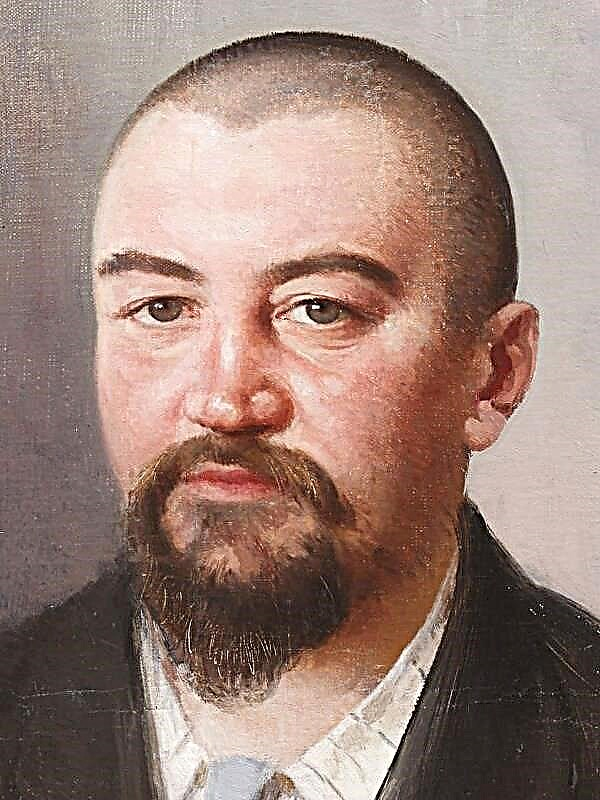In the autumn of 1919, Andrei Startsov arrived from the Mordovian city of Semidol to Petrograd. He was mobilized in the army and arrived at the duty station. But instead of the expected dispatch to the front, Andrei is left a clerk at the headquarters. Soon Rita comes to him - a woman with whom he was close in Semidol and who now expects a child from him.
At the same time, in Moscow, the German Council of Soldiers' Deputies is a man calling himself Corporal Konrad Stein. He wants to return to his homeland, to Germany. Checking Stein’s documents, the clerk wonders if that von Mühlen-Schönau knows a certain person. Feeling something was wrong, the imaginary Conrad Stein is quietly hiding. He makes his way to Petrograd and, having found his old acquaintance Andrei Startsov there, asks for help to return to Germany. A meeting with this person makes Andrei think: “If you could start living again ... Roll a ball, walk a thread to the damn hour and act differently.”
1914 student Andrei Startsov met in Germany, in Nuremberg. He was friends with the artist Kurt Wang, a spiritually close person. Kurt’s creative fate was not easy: he was forced to give his paintings to the collection of Margrave von tsur Mühlen-Schönau, who paid him generously - provided that the artist would never exhibit his works. Kurt hated the "benefactor." Upon learning of the outbreak of World War I, Kurt drew back from his bosom friend Andrei, saying that now they had nothing to talk about. Andrew was exiled to the town of Bischofsberg. From the beginning of the war, he felt like “a mote among the vast masses of machine-like inevitability moving”. In burgher Bischofsberg he was gripped by longing.
Marie Urbach was born in a villa near Bischofsberg, next to the Margrave von tür Mühlen-Schönau family castle. The marriage of her parents was considered a misalliance: the mother came from an old clan von Freuleben, while his father was a landowner and spent time drawing incomprehensible projects. Marie Urbach grew up as a weird girl. Her appearance in a peasant's yard or near a village church has always been a harbinger of misfortune. Once Marie slaughtered a goose with her own hand, another time she tried to hang a cat to see how she would die. In addition, she was the ringleader of dangerous games - for example, the search for treasure in the dungeons of a nearby castle. With her older brother Heinrich-Adolph, a born aristocrat, Marie lived pinkly and hostilely. Mother did not like Marie for her disgusting tricks. After the cat story, she insisted that the girl be sent to Miss Roni's guesthouse in Weimar. Shortly before her departure, Marie met a neighbor, the cunker von tsur Mühlen-Schönau.
The manners in the guesthouse were strict. Miss Roni suspiciously listened even to conversations about pollination of plants in science classes. Her educational system was recognized by society and the highest society as impeccable. Once in the boarding house, Marie felt that she was being lifted into an iron corset; she had to obey.
Two years later, Marie met on the Weimar street a young lieutenant von tsur Mühlen-Schönau. The lieutenant took the girl by the arm, and, despite Miss Roni's loud indignation, Marie left with him. She was absent for three days. After that, Lieutenant von tsur Mühlen-Schönau came with her to Villa Urbach and made an offer in the presence of her parents. The betrothal was to take place two years later, in 1916, when Marie came of age.
During the war, Marie Urbach's mother was the patroness of a nutritional station at the station. Marie helped her mother. After two years of war, she felt that she was bored. Once, during a walk in the vicinity of Bischofsberg, she met an exiled Andrei Startsov. Soon, Marie began to secretly come to his room. Of all that they talked about at night, Andrei and Marie remembered only that they love each other.
Before being sent to the eastern front, the Margrave von tsur Mühlen-Schönau drove home to see his bride. But Marie met him coldly. At this time, she was busy with an escape plan for Andrey. Trying to cross the border, Andrei went to the park of Schönau Castle, where he was captured by the Margrave. In the castle, Andrei saw pictures of his friend Kurt Van. After talking about German art and human destiny, von tsur Mühlen-Schönau wrote to Startsov a document confirming that the deportee was not on the run for several days, but in Schönau Castle. Marie found out about the noble act of the Margrave, but did not tell Andrei about her relationship with him. Soon, von tsur Mühlen-Schönau was captured. In 1918, German authorities announced to Startsov that he could return to Russia. Leaving, he promised to call Marie as soon as he was at home. Waiting for news from Andrei, Marie took part in organizing a soldier’s council in Bischofsberg and helped Russian prisoners.
In Moscow, Andrei met Kurt Van, who became a Bolshevik. Kurt was going to Mordovia, in the city of Semidol, for the evacuation of German prisoners and the formation of a soldier’s council among them. Andrey went with him. In Semidol, he met with the chairman of the executive committee, Semyon Golosov, clerk Rita Tveretskaya, chairman of the special department Pokisen. Golosov often scolded Startsov for his intellectual attempts to reconcile the ideal with the real. Rita Tvertskaya fell in love with Andrei.
The peasants of the village of Starye Ruchey of Semidol County demanded the abolition of the surplus appraisal. A detachment of former German prisoners under the command of von tsur Mühlen-Schönau came to their aid. The soldiers of the Semidol garrison brutally crushed the peasant uprising, hanged a disabled person, who was considered the instigator. Andrei managed to agitate most of the captured Germans to go over to the side of the Bolsheviks. Among the prisoners assigned to be sent to Germany, he recognized the dressed Margrave von tsur Mühlen-Schönau, whom the authorities were looking for. Margrave asked Startsov for help. After much hesitation, Andrei stole documents for him in the name of Konrad Stein and asked him to send a letter to his fiancée Marie Urbach upon arrival in Bischofsber. Margrave promised to do this, hiding from Andrei that Marie was his bride.
Returning to Bischofsberg, von tsur Mühlen-Schönau destroys the paintings of Kurt Van collected by him. Having met with Marie, he informs her that Startsova has a wife expecting a child. Not believing this, Marie decides to go to Russia. To get the right to enter, she marries a Russian soldier. Margrave writes about all this to Andrey. Coming to her fiance in Moscow, Marie sees a pregnant Rita and runs away.
Andrei is in despair, he understands that life never accepted him, despite all his efforts to be in the center of the main events. He can no longer remain in revolutionary Russia and wants to go to Germany, to Marie. Andrei turns to Kurt Van for help, honestly tells him the whole story with a margrave and fake documents. Infused with hatred for a former friend, Kurt Wang kills him. Shortly before his death, Andrei wrote to Marie that he had been trying all his life for everything in the world to happen around him, but he was always washed away and carried away. And people who only wanted to eat and drink were always in the center of the circle. “My fault is that I'm not wire-wound,” he concludes his letter.
The revolutionary committee recognizes Comrade Wang's actions as correct.

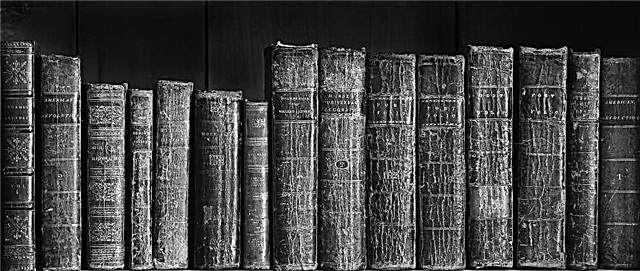
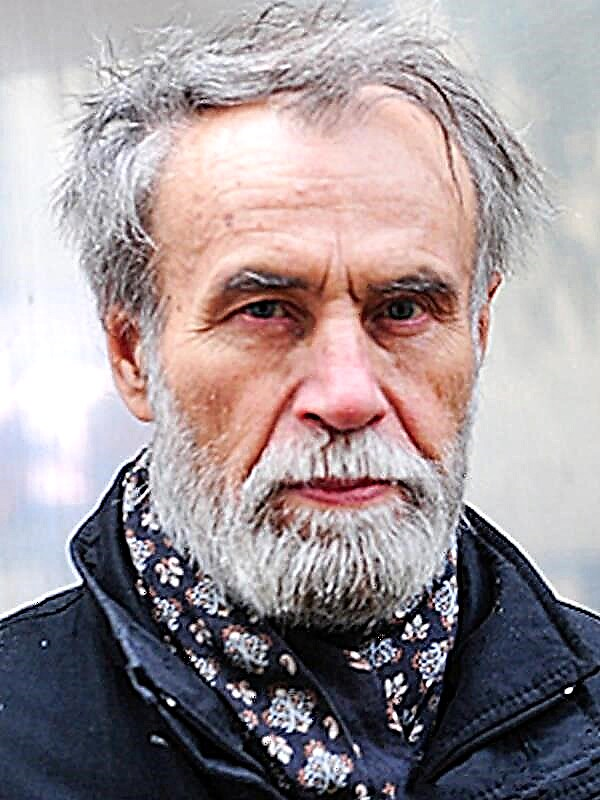
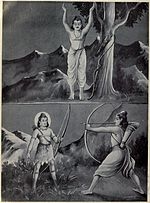
 Elder from the East Hall
Elder from the East Hall
